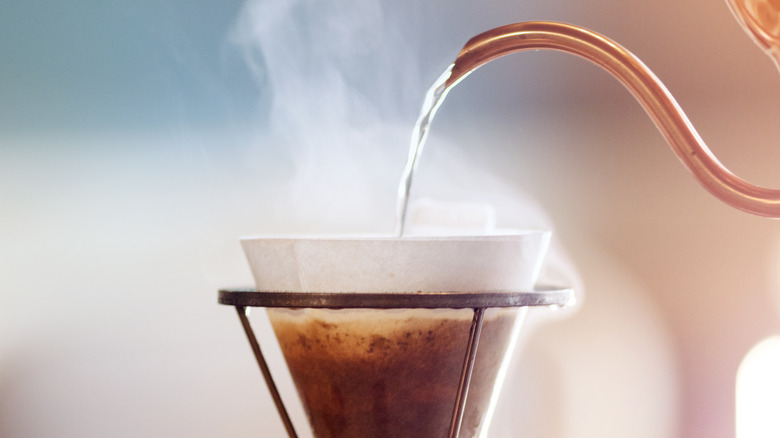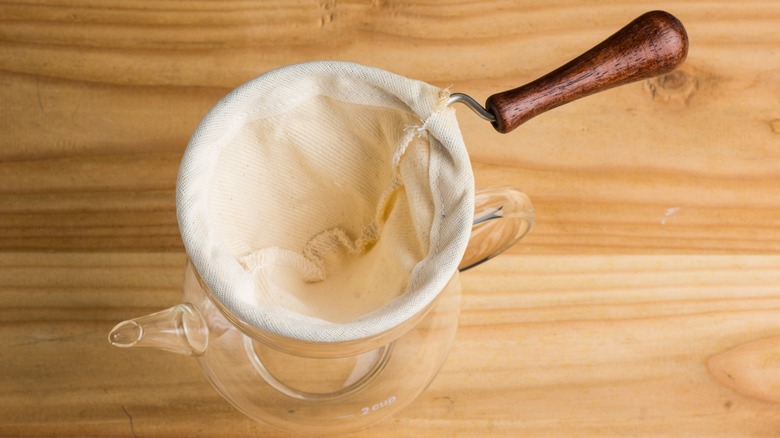For A Lighter Cup Of Coffee, Try Brewing With A Cloth Filter
For coffee enthusiasts seeking a gentler, more nuanced brew, the choice of filter can make all the difference. While paper and metal filters are common go-to's, those who prefer a lighter, milder cup of joe may find their match in using a cloth filter. Although it might not be the most familiar coffee filter to some, it's time to stop overlooking cloth filters.
A cloth filter, as the name suggests, is made from woven cloth material — such as cotton and hemp — and should be used more often than solely as an alternative to paper filters when you run out. It can be used interchangeably with paper or metal filters in various brewing methods such as pour-over or drip coffee. However, what sets cloth filters apart is their ability to remove more of the coffee oils and fine particles during the brewing process.
This filtration process results in a cleaner, smoother cup of coffee with less sediment and some, but not all, oils. By filtering out the oils that would otherwise pass through into the cup, cloth filters produce a brew that is notably brighter and less heavy on the palate. Better yet, you won't have to worry about taking a gritty sip filled with fine particles toward the end of your cup. The cloth, which has finer holes than most metal filters, ensures a more consistent and enjoyable drinking experience from start to finish.
Cloth coffee filters will reduce the bold flavor of your cup
It's worth noting, however, that these benefits come at a cost. With the heavier filtration of the coffee, the resulting brew will lack intensity and boldness compared to coffee brewed with paper or metal filters. While some may see this as a drawback, others may appreciate the subtlety and delicacy that cloth-filtered coffee offers. Whichever type of filter you choose comes down to personal preference.
For those keen to explore the world of cloth-filtered coffee, pour-over brewing methods are an excellent place to start. Simply place the cloth filter in your pour-over cone or dripper, add your coffee grounds, and proceed with your usual brewing routine. While you can sometimes reuse paper coffee filters, cloth filters last much longer than single-use options.
If you plan to use the cloth filter every day, you can place it in a cup of water and store it in the fridge so that it is clean and ready to go every morning. Otherwise, you can rinse it clean and store the filter inside a container in the freezer. Just be sure to boil it from time to time to remove any oil or particle build-up.

